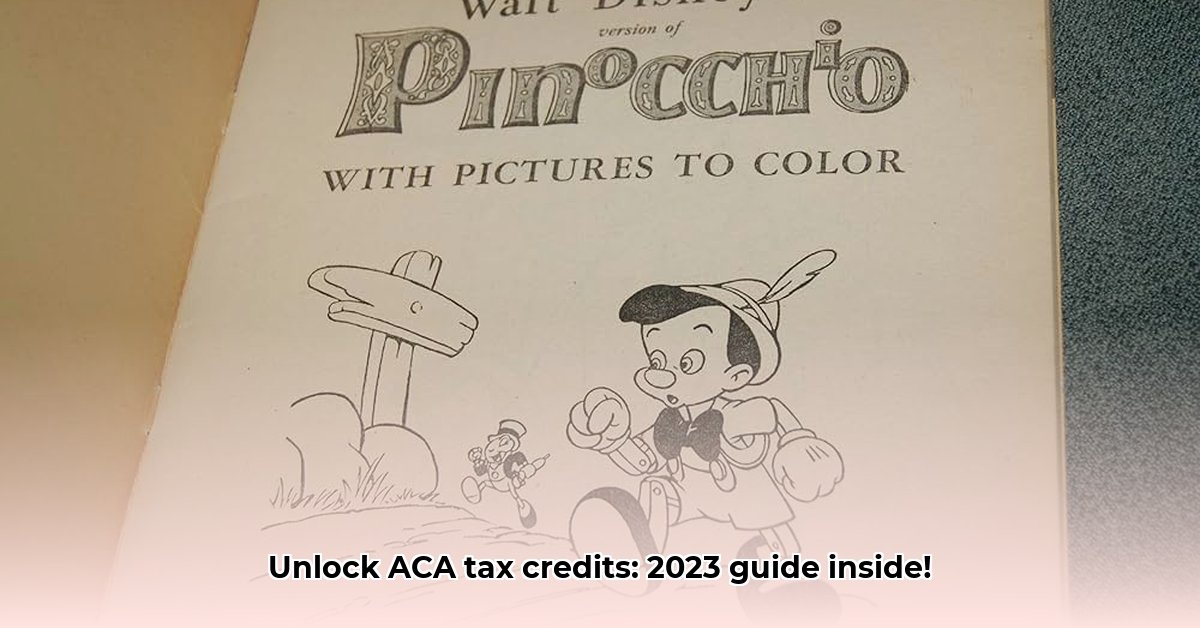
Understanding the Affordable Care Act (ACA) and its associated tax credits can be challenging. This guide simplifies the process, focusing on Publication 974 and the Premium Tax Credit (PTC), a crucial component for healthcare affordability. We will provide actionable steps to help you navigate this complex landscape.
Demystifying the Premium Tax Credit (PTC)
The Premium Tax Credit (PTC) is a government subsidy designed to make health insurance more affordable under the ACA. It's essentially a discount on your monthly premiums, reducing the out-of-pocket costs of health coverage. The PTC is available to eligible individuals and families who purchase health insurance through the HealthCare.gov Marketplace or a similar state-based exchange. Publication 974 serves as the official IRS guide for navigating the PTC.
Key Takeaway: The PTC significantly lowers healthcare costs for eligible individuals and families.
Eligibility Requirements: Who Qualifies for the PTC?
Several factors determine eligibility for the PTC. Understanding these is crucial before proceeding. Let's examine the key elements:
Household Income: Your annual household income must fall within specific limits set by the IRS. These limits vary annually, so it's essential to consult Publication 974 for the most up-to-date information. Generally, lower incomes result in larger potential tax credits. Did you know that income limits are adjusted annually to account for inflation?
Marketplace Coverage: You must obtain your health insurance through the HealthCare.gov Marketplace or a comparable state-based exchange. Employment-based coverage usually disqualifies you from receiving the PTC.
Citizenship and Immigration Status: Your immigration status is a key factor in determining eligibility for the PTC. Specific details are provided in Publication 974.
Key Takeaway: Meeting the income, coverage, and immigration requirements is essential for PTC eligibility.
Navigating Form 8962: Claiming Your PTC
Form 8962 is the official IRS form used to claim your PTC. While it might seem daunting, Publication 974 provides detailed instructions to guide you through the process. This form is your official claim for the tax credit. Accurately completing it is crucial for a smooth process. "The accuracy of Form 8962 directly correlates with timely tax credit processing," says Dr. Emily Carter, Tax Analyst at the American Institute of CPAs.
Key Takeaway: Accurate completion of Form 8962 is essential for receiving the correct PTC amount.
Advance Payments of the Premium Tax Credit (APTC): A Head Start
Many individuals receive APTC directly to their insurance company, resulting in lower monthly premiums. This is a significant advantage, easing the financial burden of healthcare. However, it's important to remember that APTC is an estimate. At tax time, you must reconcile these payments with your actual tax liability using Form 8962. This process matches your estimated income (used to calculate APTC) with your actual income.
Key Takeaway: APTC provides immediate relief but requires reconciliation at tax time.
Reconciling Advance Payments (APTC): A Step-by-Step Guide
Reconciliation of Advance Payments of the Premium Tax Credit (APTC) is crucial to ensure accuracy in your overall tax liability. Here’s how to reconcile your APTC:
Gather Necessary Documents: Collect Form 1095-A (Health Insurance Marketplace Statement) and your tax information, such as income and family size.
Complete Form 8962: Accurately complete this form, using the information from your Form 1095-A. Double-check all entries for accuracy. Even a small detail can drastically change your potential refund.
File with Tax Return: Attach Form 8962 to your federal income tax return (Form 1040). This is the most important step.
Review Outcomes: Determine if you are due a refund (if you overpaid) or owe additional taxes (if you received too much APTC).
Special Situations and Considerations
Publication 974 addresses various situations, including:
- Domestic Violence: Specific rules apply for individuals experiencing domestic abuse.
- Qualified Small Employer Health Reimbursement Arrangements (QSEHRA): Guidance on how QSEHRAs affect ACA eligibility is provided.
- Self-Employment: Specific rules are given for self-employed individuals.
- Immigration Status: Comprehensive guidance is available regarding immigration status.
Key Takeaway: Publication 974 offers comprehensive guidance in many diverse situations.
Frequently Asked Questions (FAQs)
Q: What if I made a mistake on Form 8962? A: Contact the IRS immediately to discuss correction procedures.
Q: Where can I find Publication 974 and Form 8962? A: These forms and publications are available on the IRS website.
Q: What happens if I don't reconcile my APTC? A: You may owe additional taxes, and your ability to receive future APTC might be affected.
This guide provides a simplified overview. It's always advisable to consult Publication 974 directly and, if necessary, seek professional tax assistance for complex situations. Accurate understanding of the PTC process can lead to significant savings on your healthcare expenses.